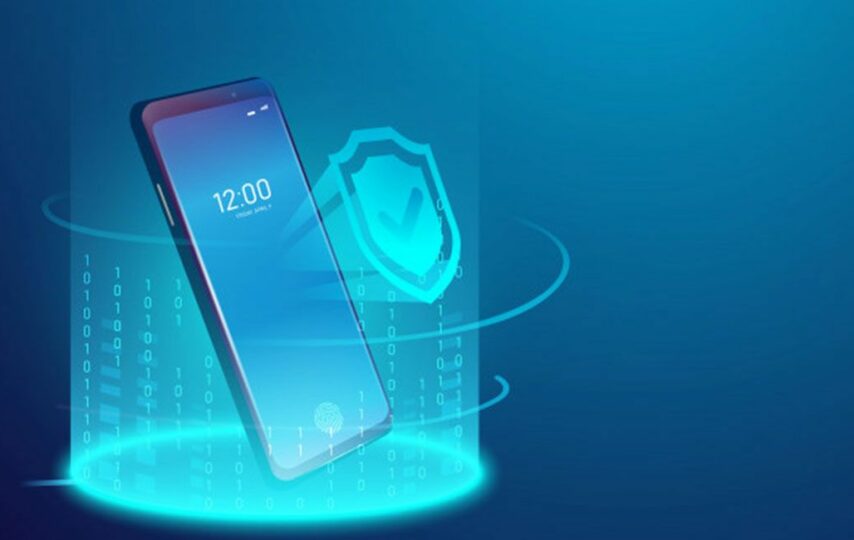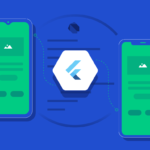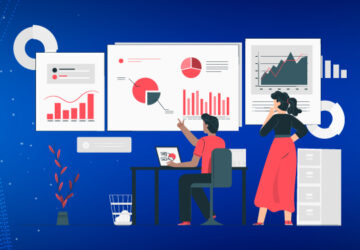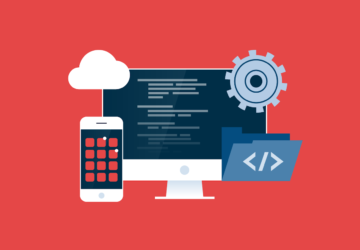A world without mobile apps is difficult to envision. They significantly improve our lives by providing entertainment, keeping us healthy by some famous apps providing health related problems, financial management, travel planning, and nearly every other aspect of our life.
It’s no secret that the app market is a profitable niche. According to a survey by Sensor Tower, user spending on Google Play is anticipated to increase by 19% CAGR from $53 billion in 2022 to $60 billion in 2023.
The market for mobile app development is experiencing significant growth. So the main challenge in this situation for you as a product owner is to protect the business idea, value proposition, and development cycle.
Companies should think about and deal with legal concerns from the start and during mobile app development in order to safeguard their rights and reduce liability risks associated with breaching others’ rights.
Let’s dive into the details about top 8 legal issues to consider to secure the app in 2023:
- Confidential Agreements: By placing a commitment on the parties to be trustworthy and honest to the firm, an NDA or other needed agreement helps the company keep its secrets to itself. In order to safeguard the confidentiality of information, NDAs are legally enforceable papers that acknowledge a confidential connection between the parties. The persons engaged could be the designers, producers, partners, stockholders, clients, employees, or any other necessary person.
In the app development industry, you should make sure to prevent any illegal sharing of data, design, or software sharing for any development malware or malpractice.
- Intellectual Property Rights: The term “intellectual property” refers to intangible works produced by human intelligence. It is applicable to all phases of the original app development process. By registering them under the appropriate Copyright, Patent, or Trademark laws, these intellectual properties can be safeguarded. These intellectual property regulations aid publishers and developers of mobile apps in increasing the revenue from their works.
- Copyright: it gives creators the power to regulate internet access, replication, distribution, and adaptations, safeguarding original creator works like mobile apps. Over a $1.7 trillion ecosystem has been established in the mobile app economy. The source code and design of an app are protected by a copyright in this scenario. The Copyright Act of 1957 governs copyright. The security offered lasts for 60 years at a time.
- Patent: a patent helps to protect the creation of the app’s approach and process. Patents are obtained for novel, inventive, and non-obvious ideas. Utility, design, and plant patents are the three sorts of patents that are protected. The Patent Act of 1970 provides legal protection for patents in India. The protection offered lasts for 20 years at a time.
- Trademark: The Trade Marks Act of 1999 protects firm trademarks and enables businesses to maintain their originality and authenticity. An established trademark creates a fiduciary relationship between the business and the client. The first step in establishing a business that is to secure its identifying feature should be to get a trademark. Identifying the market and making sure not to copy similar or identical existing registered trademarks are the initial steps in trademarking. The protection is offered for 10 years at a time and must be renewed when it expires.
- Piracy: Despite the fact that there are rules and laws to protect apps. 14 billion pirated apps result in a $3–4 billion loss for developers per year. Mobile app companies typically shut down as a result of piracy/stealing, spyware, fraudulent app installs, illegal ad networks, and other factors. A stepping stone in the app development industry has always been the usage of pirated websites or multiple user accounts.
- Jurisdiction: It is the developer’s responsibility to adhere to state regulations when launching any app in order for it to be promoted and distributed. Even though a piece of work may be original in its nation of origin, it might violate a copyright or trademark elsewhere or any other nation. Protocols and agreements also allow for cross-border marketing when the proper steps are taken.
- Other Agreements: To specify the assets and liabilities involved, a firm should be incorporated together with any other agreements. This is true for any startup as well. The ownership of the business is established through incorporation.
Similar to any other firm, establishing a new app necessitates the execution of agreements such as founders’ and investors’ agreements.
- App Store Agreements: Another crucial step in building a new application is choosing the market and deciding how to distribute it. The app must meet the publication standards of the app store, be it for Windows, Android, or iOS, depending on the target audience. The app uses the app stores as a platform to link a user with a third-party app developer. Recent events demonstrate that even while these app stores serve as a platform or a utility, users should thoroughly grasp how they operate before getting engaged.
- Terms of Use and Privacy Policy: Mobile apps must compulsorily include a Terms of Use and Privacy Policy agreement as part of the intermediary rules under the IT Rules of 2011. The developer and user have agreed to everything in this end-to-end contract, including the app’s usage restrictions and any potential legal obligations. Terms of service or terms and conditions are sometimes used interchangeably with the phrase “terms of use.”
The information gathered is described in a privacy policy relevant to what is being gathered, how the data will be used, and who will receive it. These agreements should be as clear-cut and open as possible.
Browsewrap and Clickwrap are the two forms of website agreements that are listed under terms of use and privacy policies. In a browsewrap agreement, the user is just required to visit the website; in a clickwrap agreement, the user is required to demonstrate approval after seeing the website.
- End-User License Agreement: It is a legally binding agreement between a creator and the application’s end-user, or customer, that only permits the end-user to be a software licensee. This stops any unlawful app use. The specifics of what the user or any other third party can and cannot do are outlined in an End-user license agreement, which safeguards the intellectual property rights of applications. The agreement not only specifies the business but also exposes the copyright license and the terms and circumstances pertaining to the app.
What Do We Need for All These Agreements?
- The website developer can minimize and change liability.
- The developer can specify the rules and restrictions that apply to their website.
- They can build up a procedure for your website’s indemnification.
- Including an arbitration clause that is regarded as advantageous.
The most important requirement that a developer must adhere to in relation to such agreements is to consistently update the app and website content.
How to Find a Reliable Software Development Team or Developers so that your Mobile App is Secured?
Building custom software is a difficult procedure because it calls for taking into account several development standards, industry quirks, app legal difficulties, etc. Therefore, the key is to select a software development company with experience who offers a transparent project development cycle and documentation.
There are undoubtedly many different software development teams, thus we’d like to highlight the fundamental qualities that any reputable company should provide:
- Experience in the software industry.
- Right or appropriate skills of developers.
- Regular communication.
- Keeping you updated on the progress of the development.
- A precise and clear estimation of the project submission.
- Development done within your budget.
- Conducts industry research before beginning the development process.
- After project submission service.
What Should You Do If Your Project Idea Has Already Been Stolen?
You must alert the platforms if you find a duplicate in the Apple Store or Google Play. The stores have the option of limiting duplicate apps or rejecting them. For instance, the App Stores lowered the position of the copies when the Flappy Bird story received widespread attention. For these situations, each store has its own policy.
Even though it seems simple on paper, you can make sure that no one will steal your app idea by making thorough preparations and working with an expert IT provider.
Conclusion
The app development industry is no longer what it was twenty years ago. In the digital age, mobile applications have become an essential component of daily life. The rapid development of software for mobile apps and technological advancements have raised the developers’ obligation to be aware of legal considerations.
A smart approach to legal compliance during the app development process will help to reduce the risk of legal trouble and safeguard your intellectual property rights. With the help of a reliable software development partner, you can effectively handle the majority of legal issues. Reliable companies comply with the majority of legal requirements, take safeguards to reduce your liability, and support the development of your firm.







